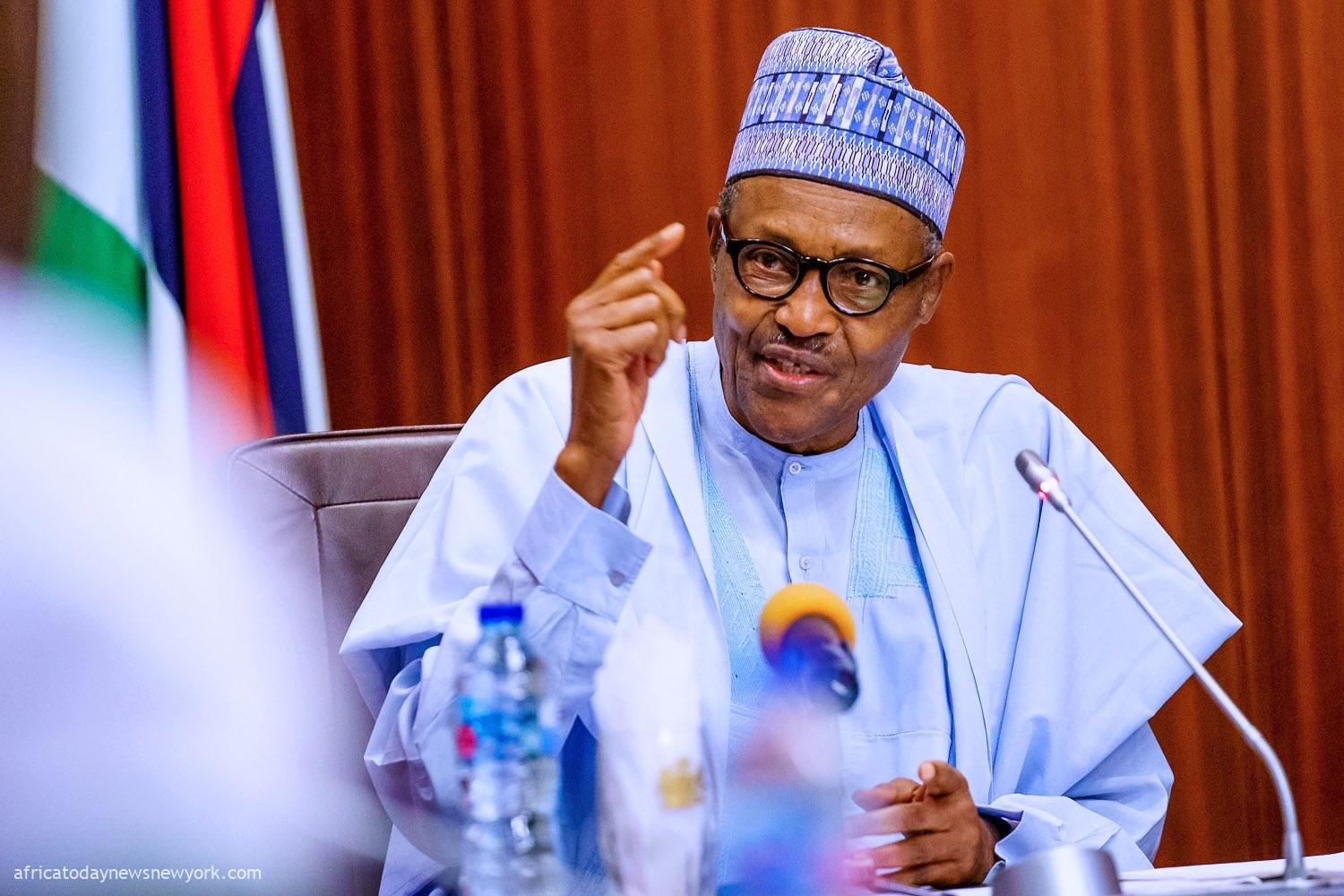The President of Nigeria, Muhammadu Buhari has finally signed into law 16 bills seeking to amend various parts of the 1999 Constitution as the country looks to restructure its critical institutions.
This was made known on Friday evening by a Joint Senate and House of Representatives Special Ad Hoc Committee on the Review of the 1999 Constitution.
According to the information from the Office of the Deputy Speaker of the House of Representatives, Ahmed Wase, who is the co-chairman of the committee, the bills assented to by the President included those devolving powers from the Federal Government to the states as some items were moved from the Exclusive Legislative List to the Concurrent List in the Constitution.
Africa Today News, New York reports that before now, many lawyers and analysts have argued for years that the exclusive legislative list, comprising matters which only the Federal Government could legislate on, was too heavy and that it needed to devolve power to the states.
The power devolution bills that passed legislative requirements include those on power, railway, airports and prisons as well as biometric and criminal records. While the President signed the bills seeking to grant state legislature and judiciary autonomy, majority of the state Houses of Assembly opposed independence for local governments.
Read Also: Fuel, Cash Crunch: Buhari Gets 7-Day Ultimatum From NLC
The National Assembly in January transmitted 35 Constitution Alteration Bills passed by the state House of Assembly, out of the 44 bills sent to the states.
To amend a clause in the constitution (two-thirds or four-fifth) majority of each of the Senate and the House need to approve the amendment after which it will be transmitted to the state Houses of Assembly, where two-thirds or 24 out of the 36 of them have to concur.
Out of the 36 states, 27 Houses of Assembly – Abia, Adamawa, Akwa Ibom, Anambra, Bauchi, Bayelsa, Benue, Borno, Cross River, Delta, Ebonyi, Edo, Ekiti, Enugu, Imo, Kaduna, Kano, Katsina, Kogi, Lagos, Nasarawa, Niger, Ogun, Ondo, Osun Rivers and Yobe – forwarded their resolutions on the bills.
The House had urged Houses of Assembly in Gombe, Jigawa, Kebbi, Kwara, Oyo, Plateau, Sokoto, Taraba and Zamfara states “that are yet to forward their resolution on the bills to do so in fulfillment of their constitutionally imposed legislative obligation to the constitution amendment process.”
On Friday, however, a statement from the deputy speaker’s office quoted Wase as commending the President for assenting to “some momentous legislations.’
According to Wase, the legislation was fragmented into 16 bills. They are, ‘Fifth Alteration (1) The bill seeks to alter the Constitution of the Federal Republic of Nigeria, 1999 to change the names of Afikpo North and Afikpo South Local Government Areas; and for related matters.
‘(2) to change the name of Kunchi Local Government Area; and for related matters; (3) to change the names of Egbado North and Egbado South Local Government Areas; and for related matters; (4) to correct the name of Atigbo Local Government Area; and for related matters; (5) to correct the name of Obia/Akpor Local Government Area; and for related matters.
‘(6) The bill seeks to alter the constitution to provide for the financial independence of state Houses of Assembly and state Judiciary; and for related matters; (8) to regulate the first session and inauguration of members-elect of the National and State Houses of Assembly; and for related matters; (9) to delete the reference to the provisions of the Criminal Code, Penal Code, Criminal Procedure Act, Criminal Procedure Code or Evidence Act; and for related matters.’
Others are, ‘(10) to exclude the period of intervening events in the computation of time for determining pre-election petitions, election petitions and appeals; and for related matters; (12) to provide for the post call qualification of the Secretary of the National Judicial Council; and for related matters; (15) to delete the item ‘prisons’ in the Exclusive Legislative List and redesignate it as ‘Correctional Services’ in the Concurrent Legislative List; and for related matters; (16) to move the item ‘railways’ from the Exclusive Legislative List to the Concurrent Legislative List; and for related matters.
‘(17) The bill seeks to alter the Constitution of the Federal Republic of Nigeria, 1999 to allow states generate, transmit and distribute electricity in areas covered by the national grid; and for related matters; (23) to require the President and Governors to submit the names of persons nominated as ministers or commissioners within 60 days of taking the oath of office for confirmation by the Senate or state House of Assembly; and for related matters; (32) to correct the error in the definition of the boundary of the Federal Capital Territory, Abuja; and for related matters.
‘(34) The bill seeks to alter the Constitution of the Federal Republic of Nigeria, 1999 to require the government to direct its policy towards ensuring right to food and food security in Nigeria; and for related matters.’
Essentially, the Fifth Alteration Bills No. 6, 7, 16, and 17 deal with devolution of power, promoting true federalism and strengthening state Houses of Assembly and judiciary.
Meanwhile, the deputy speaker congratulated members of the ninth Assembly for working “tirelessly” to ensure the passage of what he called the legacy legislation.

